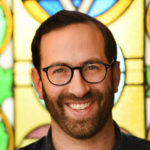In Parshat Vaera, the action revolves around God’s command, through Moses, that Pharoah free the enslaved Israelites. Pharaoh’s hard-headedness and selfishness preclude him from doing so immediately, and in response, God sends a series of plagues to Egypt. Dam, tzfarde’a, kinim…
In the last year, we’ve experienced our own, very real, plague. The COVID-19 pandemic has affected every aspect of our world, and to date has taken the lives of almost two million people worldwide. This plague has forced us to radically alter our day-to-day lives: it has limited our activities, limited our movement, and caused us to stay at home to a much larger degree. One result of our newfound immobility, interestingly, has been the degree to which we’ve been lessening our impact on the world.
Just as the biblical plagues provided brief windows of enlightenment for Pharaoh, we have witnessed how the reduction in human activity over the course of this pandemic has positively impacted the environment and revitalized the Earth. Researchers from the American Geophysical Union noted at their fall meeting that “Deforestation rates are changing in some places, air pollution is diminishing and water quality is improving…in some areas since the pandemic began earlier this year.” The pandemic has acted as a sort of accidental Shmita, or sabbatical year, allowing the earth to rest and recover slightly from human impact.
We should let this insight affect our actions moving forward. It is our responsibility to not make the same mistake of hard-headedness that Pharaoh made, but rather come to terms with the fact that we need to make a change. Reducing our emissions is the key to preserving the Earth that God gave us, and we have been given a clear vision of a future in which we actively reduce emissions and consciously take steps to make a more sustainable future.
Much like God told Moses to take his people out of the grips of a selfish rule, our own country and society are at a crossroads. Through a renewed commitment to green energy and combating climate change, we must be leaders in realizing the personal and communal selfishness we’ve been indulging, and harming the world we call home. Only then can our species, like the ancient Israelites, “leave the Egypt” of our harmful ways and move towards a better future.


Annie Hait is a sophomore at the University of Pennsylvania, She is pursuing a Bachelor’s in Arts with a major in Politics, Philosophy, and Economics, as well as minors in Arabic and Modern Middle Eastern Studies. She is an executive board member of her school’s International Affairs Association and has an interest in politics and international relations.
Rabbi Gabe Greenberg is the Interim Director and Senior Jewish Educator of Penn Hillel. One way that Hazon has contributed to his personal and professional growth was his participation in the Adamah Fellowship in 2005. Gabe lives with his family in West Philly.
Shmita Friday is just one piece of a large conversation that has been ongoing for a long time! We’d love to hear what you think – post a comment below, join our facebook group, and start talking about shmita with your friends and family.





Comments are closed.